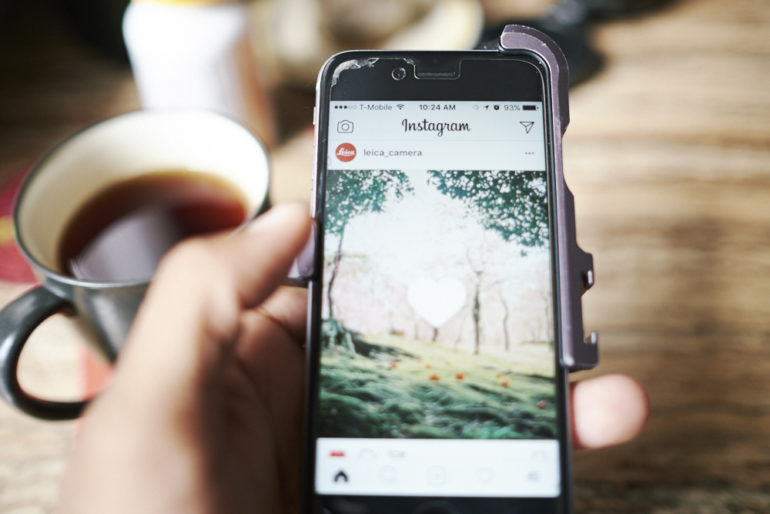Last Updated on 10/01/2020 by Chris Gampat
With a model that is built on a simple click for validation, I look at myself to see if the ability to receive feedback is being harmed because of it.
Being a writer and photographer, I’m automatically searching for the validation of others. Call it creative, attention seeking or the need to be accepted, the measurement of my success is partly dependent on the reaction of others. My generation grew up with a very simplistic approach to giving and receiving feedback – click like, or don’t click at all. However, when people give genuine feedback it can throw me off course. As a result, it’s not always easy to initially digest.
Being Honest with Myself
I like to tell myself that I don’t care how many likes a photo or article gets. The reality is, however, that when they do gets likes it gives me a feeling of elevation. Maybe it’s the dopamine flowing through my brain or my ego getting its fix, but something happens within me that makes me feel good about myself. Of course, this is nothing unusual. People appreciating your creativity should feel good – the problem is that the model is such a basic way of receiving feedback.
“When it’s positive, I’m overwhelmed. When it’s negative, I’m defensive. And my initial instinct is to want people to return to simply liking or not liking.”
Some people accidentally like your content, whilst others just scroll and like anything on their feed. Then there are the people who click like just because they like you. We are not really learning much about the quality of our work just because people are prepared to take less than a second to click a screen.
Then there are those that post basic comments. “Nice” – “Great stuff” – or some emojis that don’t quite say anything at all. I’m one of those people too. This is the level of critique that has become the standard for showing love for another person’s work. I feel this can only be a bad thing, mainly because I think it’s having a negative impact on me.
What Happens When People Say More?

Thankfully there are people on the internet who are prepared to give detailed feedback. But for me, the more detailed the response the more I have to reflect on myself. There are no layers to liking something, it’s either you do or you don’t, period. But when someone breaks something down, adds context with a mix of praise and criticism, I tend to react more emotionally. That’s not to say I can’t take it. I’m pretty thick skinned (I have to be) and there is no bigger critic of myself than me. But when the emails and PMs do come in, in order to process them, I usually have to take a day or so to respond.
When it’s positive, I’m overwhelmed. When it’s negative, I’m defensive. And my initial instinct is to want people to return to simply liking or not liking.
I’ve experienced it on the other side too. Extremely popular social media photographers have contacted me to express their dissatisfaction at something I wrote about their work – even when it has been written with a positive tone. I look at their feed and see the same superficial approach to receiving feedback. I can’t help but feel social media is contributing to us all becoming a little too sensitive.
We’ve all seen the studies on how social media impacts our brains. It’s designed to be a drug, to keep us hooked and give us instant gratification. Methodically breaking down someone’s art is stopping us from getting our fix as soon as we would like – it may not give us the fix we want at all.
I have to believe that anyone who is concerned enough to contact me is doing so with good intentions.
Becoming More Robust When Receiving Feedback
To be better (which is always my aim) I realize ego needs to be put to one side and that I must be able to effectively consider the deeper opinions of others. It’s important that I’m grateful of people who take time to give considered feedback on my work. I have to believe that anyone who is concerned enough to contact me is doing so with good intentions. And that those people are more useful to me in terms of progression than those who simply hit a thumbs up or a heart.
Becoming more accustomed to a broader conversation about our work will help us to better accept it.
Being the Change I Want to See
I feel a good way of adjusting how I receive the behavior of others is to set my own example of how I want to behave. As I said, I’ve been guilty of just mindlessly liking a photograph, or putting minimal effort into leaving a comment. Going forward I’m going to give detailed feedback for the work that is shared in my online circles. I want to move away from this basic approach of patting photographers on the back.
For me, the benefit of this is the more detail I put in, the more detail I will be able to absorb when I receive it. I think as a community it will also help improve the standard of work that is being created. Sure some egos may be rubbed up the wrong way, mine included. But I feel the long term impact will be a positive one. Becoming more accustomed to a broader conversation about our work will help us to better accept it. That can only be a good thing, right?
We don’t learn much from likes; we learn a whole lot more from words – even if it at first they are difficult to take.
Dan Ginn is a UK based street photographer and writer. Learn more about him via his website and Instagram.


